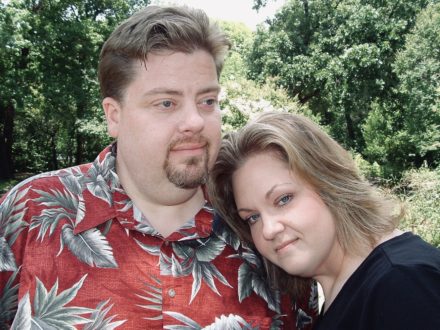“We live from our heart.”
From that first line of Renovation of the Heart (Navpress, 2002), the late Dallas Willard drills deep into our spiritual core and the need for spiritual formation through Christ. Clearly, this book rolls out of a well-lived life—studious, devotional, and humble. Willard obviously thought deep and long about character, personality, destiny, societies, and cultures. But mostly he thought about God.
This book is so clear, gentle, and well organized. It’s like Willard discovered a big stack of unkempt theological firewood, then began to stack it neatly. Not too neatly, but just enough to help readers think as they read. Willard makes us full partners in arriving at discernments of truth. Now, what follows is not a review, but rather a rock skipping across the pond of this book.
First, Willard understood how evil germinates in the human heart. That’s why too many people, including children, live along various fronts of “withdrawal and assault” from those who should care for them. That alienation and brutality eventually leads to the slaughter of millions from “enlightened” thinkers, leaders, and governments.
Jesus, the eternal Son, is the largest figure in all of history because His life reversed the corruption that invaded all people in all times and places. We were designed to love and to be loved by God. When we refuse it—when we seek or find love in any other place, thing, idea, event, or person—we miss our purpose and end up imprisoned to sin. We all live under government. The only question is, who’s government—His or ours?
While reading this book, I often thought of Paul Batalden’s great slice of wisdom: “Every system is perfectly designed to get the results it gets.” When we live in anger, weariness, lust, fear, “assault and withdrawal,” and other human conditions, it is because we have perfectly designed our lives to get them. The only answer is to forsake our own way and seek the King and His Kingdom.
First, as a foundational issue, Willard sees six basic aspects in our lives:
1. Thought (images, concepts, judgments, inferences)
2. Feeling (sensation, emotion)[1]
3. Choice (will, decision, character)
4. Body (action, interaction with the physical world)
5. Social context (personal and structural relations to others)
6. Soul (the factor that integrates all the above to form one life)
Willard doesn’t present those aspects as contradictory to the triad view of human life—body, soul, and spirit. He simply lays them out as the crucial zones of life.
Sadly, most people do not even understand that construct. As a result, they are lost. And, as Willard explains, “Something that is lost is…not where it is supposed to be, and therefore it is not integrated into the life of the one to whom it belongs and to whom it is lost. Think of what it means when the keys to your house or car are lost. They are useless to you, no matter how much you need them and desire to have them and no matter what fine keys they may be. And when we are lost to God, we are not where we are supposed to be in his world and hence are not caught up into his life. The ultimately lost person is the person who cannot want God. Who cannot want God to be God… Wanting God to be God is very different from wanting God to help me.”
Right there is the crisis point of all life. Who owns us? On that, Willard comes down the track like a freight train:
“Christian spiritual formation rests on this indispensable foundation of death to self and cannot proceed except insofar as that foundation is being firmly laid and sustained…Covetousness is self-idolatry, for it makes my desires paramount. It means I would take what I want if I could.”
And that is why, “What we call ‘civilization’ is a smoldering heap of violence constantly on the verge of bursting into flame.”
Transformation of the Mind and Body
Willard, author (The Divine Conspiracy and other books), professor, and director of the University of Southern California’s School of Philosophy, was a true scholar. So, he understandably cared about clear thinking. He writes, “Bluntly, to serve God well we must think straight; and crooked thinking, unintentional or not, always favors evil. And when the crooked thinking gets elevated into group orthodoxy, whether religious or secular, there is always, quite literally, ‘hell to pay.’ That is, hell will take its portion, as it has repeatedly done in the horrors of world history.”
And he also focuses on the transformation of the human body. “For good or for evil, the body lies right at the center of the spiritual life …our body is a good thing. God made it for good. That is why the way of Jesus Christ is so relentlessly incarnational. The body should be cherished and properly cared for, not as our master, however, but as a servant of God.
“Incarnation is not just an essential fact about Jesus: that ‘Christ is come in the flesh.’ Rather, he came in the flesh, a real human body, in order that he might bring redemption and deliverance to our bodies… This present life is to be caught up now in the eternal life of God. But of course ‘the life I now live in the flesh’ is inseparable from the mortal body I now have. So it too must become holy, must ‘come over’ to Christ’s side.”
Social Dimensions
The geniuine tragedy of human life sweeps in when damaged people get together. Toxic thinking, the centrality of feelings, corrupt choices, ignorance of the body, and disintegrating souls produce societies that abuse and destroy people. Especially children.
“The spiritual malformation of children is the inevitable result. Their little souls, bodies, and minds cannot but absorb the reality of assault and withdrawal in the climate where their parents or other adults are constantly engaged in them. And of course they are soon in the line of fire themselves… in such a context you can almost see the children shrivel.
“Their only hope of survival is to become hardened… Hardened, lonely little souls, ready for addiction, aggression, isolation, self-destructive behavior, and for some, even extreme violence, go out to mingle their madness with one another and nightmarish school grounds and ‘communities.’ They turn to their bodies for self-gratification and to control others, or for isolation and self-destruction.
“The wonder is not that they sometimes destroy one another, but that the adults who produce them and live with them can, with apparent sincerity, ask ‘Why?’ Do they really not know? Can they really not see the poison in the social realm?”
Willard also laments western society’s inept responses… “sickeningly shallow solutions to the human problem, such as ‘education’ or ‘diversity’ or ‘tolerance…’ they do not come close to the root of the human problem.”
The Covenant Community
Finally, Willard turns to Romans 12:9-21 for a comprehensive list of what gatherings of covenant communities, local churches should look like:
1. Letting love be completely real
2. Abhorring what is evil
3. Clinging to what is good
4. Being devoted to one another in family-like love
5. Outdoing one another in giving honor
6. Serving the Lord with ardent spirit and all diligence
7. Rejoicing in hope
8. Being patient in troubles
9. Being devoted constantly to prayer
10. Contributing to the needs of the saints
11. Pursuing (running after) hospitality
12. Blessing persecutors instead of cursing them
13. Being joyful with those who are rejoicing and being sorrowful with those in sorrow
14. Living in harmony with one another
15. Not being haughty, but fitting in with the “lowly” in human terms
16. Not seeing yourself as wise
17. Never repaying evil for evil
18. Having due regard for what everyone takes to be right
19. Being at peace with everyone, so far as it depends on you
20. Never taking revenge, but leaving that to whatever God may decide
21. Providing for needy enemies
22. Not being overwhelmed by evil, but overwhelming evil with good
Willard says, “Just think for a moment what it would be like to be a part of a group of disciples in which this list was the conscious, shared intention, and where it was actually lived out…”
Transforming the Soul
This chapter, one of the book’s best, gets to the most crucial issue: the health of the human soul. He writes, “The soul is that aspect of your whole being that correlates, integrates, and enlivens everything going on the various dimensions of the self… And the person with the ‘well-kept heart,’ the soul will be itself properly ordered under God and in harmony with reality…. For such a person, the human spirit will be in correct relationship to God. With his assisting grace, it will bring the soul into subjection to God and the mind (thoughts, feelings) into subjection to the soul. The social context and the body will then come into subjection to thoughts and feelings that are in agreement with truth and with God’s intent and purposes for us.”
One of the best paragraphs in the book: “… The Psalm 1 man delights in the law that God has given. Note, he delights in it (verse 2 ). He loves it, is thrilled by it, can’t keep his mind off of it. He thinks it is beautiful, strong, wise, an incredible gift of God’s mercy and grace. He therefore dwells upon it day and night, turning it over and over in his mind and speaking it to himself…The result is a flourishing life.”
“… Our soul is like an inner stream of water, which gives strength, direction, and harmony to every other element of our life. When that stream is as it should be, we are constantly refreshed and exuberant in all we do, because our soul itself is then profusely rooted in the vastness of God and his Kingdom, including nature; and all else within us is enlivened and directed by that stream.”
[1] According to Willard, “a great part of the disaster of contemporary life lies in the fact that it is organized around feelings. People nearly always act on their feelings… the will is then left at the mercy of circumstances that evoke feelings.”



